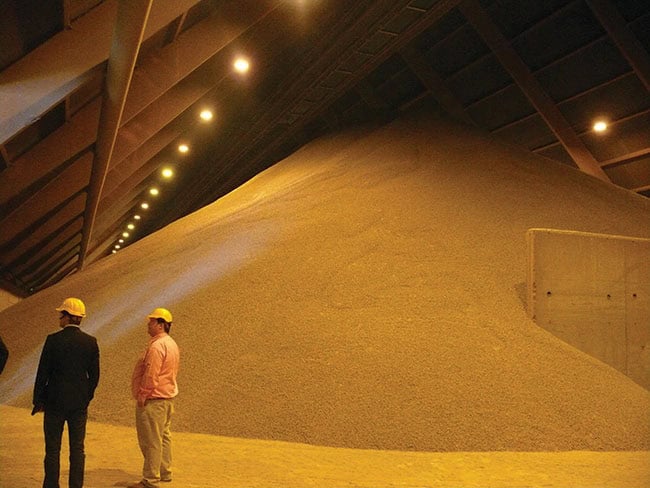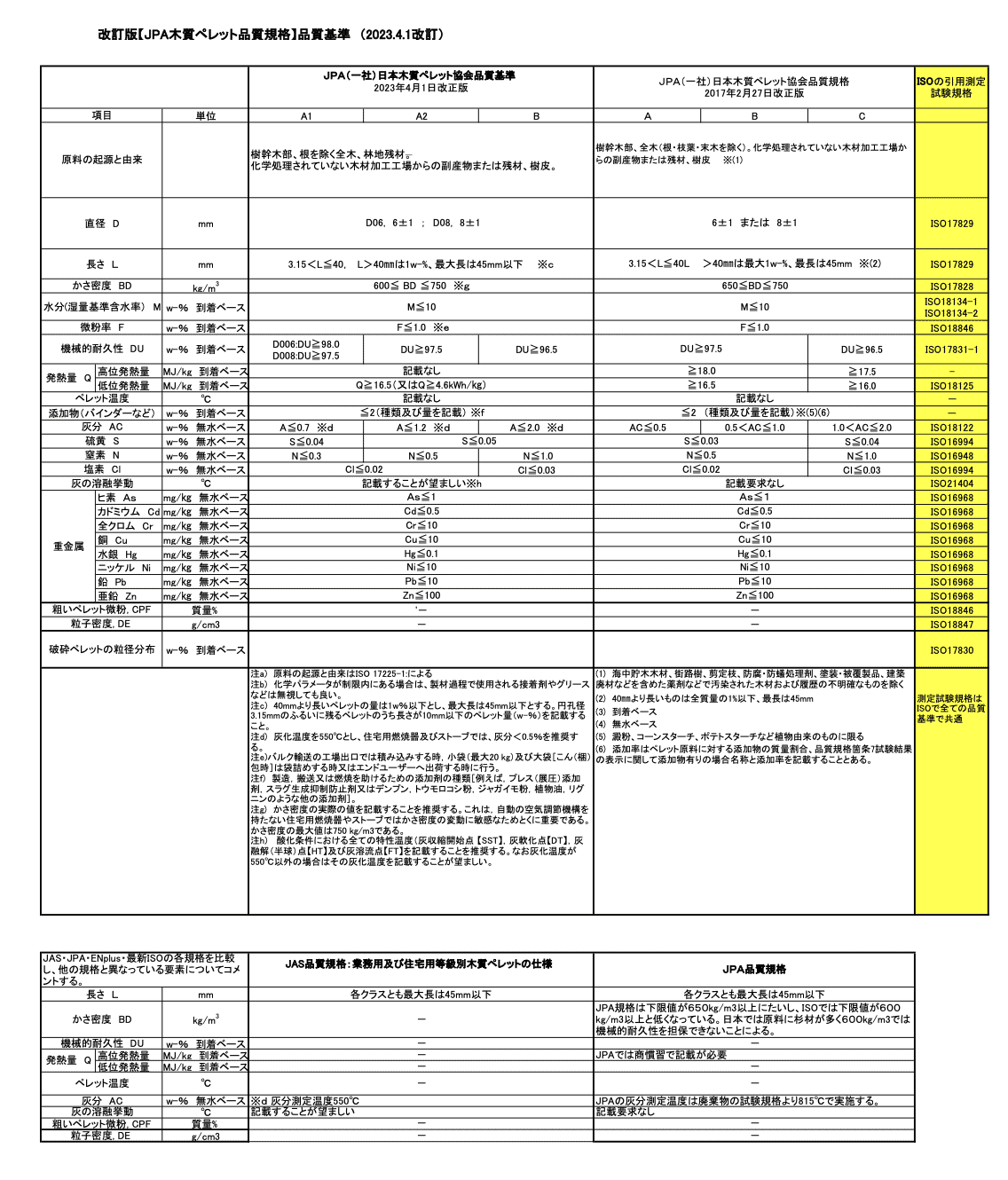Japan, the world’s third-largest economy, is a significant and rapidly growing player in the global wood pellet marke. In 2022, Japan’s wood pellet imports reached an impressive $909.3 million USD, reflecting the nation’s commitment to renewable energy and decarbonization goals.
Let’s delve into the factors shaping Japan’s wood pellet landscape and its potential for the future.
Drivers of Japan’s Wood Pellet Imports
-
Government Policies Promoting Biomass:
- The Feed-in-Tariff (FIT): Japan’s FIT program offers generous subsidies for renewable electricity generation, including power plants utilizing biomass. This has been the single most influential factor behind Japan’s increasing wood pellet imports.
- Focus on Sustainability: Recent revisions to the FIT scheme may increase incentives for higher-sustainability biomass, potentially impacting sourcing patterns in the future.
-
Co-firing in Coal Power Plants:
- Emissions Reduction Strategy: Co-firing wood pellets with coal allows Japanese power plants to reduce greenhouse gas emissions while utilizing existing infrastructure. This has created substantial wood pellet demand.
- Gradual Shift: While co-firing is a transitional strategy, it’s likely to remain a key market driver for several years as Japan works towards a higher percentage of renewables.
-
Industrial and Residential Heating:
- Growing Industrial Use: Various Japanese industries are starting to incorporate wood pellets in their heating processes, offering additional demand beyond power generation.
- Emerging Residential Market: While still relatively small-scale, Japan is seeing the development of a residential market for wood pellet stoves and boilers. This sector has the potential for future growth.
-
Sustainability as a Rising Factor:
- Increasing Importance: Japan is placing greater emphasis on ensuring imported wood pellets come from sustainably managed forests.
- Demand for Certifications: Certifications like SBP are becoming increasingly important for Japanese importers to meet both regulatory requirements and consumer expectations about responsible sourcing.
- Market Impact: This focus on sustainability could influence Japan’s choice of suppliers, potentially favoring regions or producers with robust certification practices.

Japan’s Supply Landscape
-
Top Suppliers:
- Vietnam: Currently Japan’s largest wood pellet supplier. Concerns have risen about sourcing practices within Vietnam.
- Canada: A major exporter to Japan with a generally strong reputation for responsible forestry, though regional variations exist.
- Australia: A growing supplier with the potential to increase its market share in Japan. Sustainability practices are under scrutiny.
- United States: While not as dominant as the others, the US is an established supplier. Sustainability perceptions can vary depending on the region of origin.
-
Other Sources:
- Malaysia: Contributes some volume to Japan’s imports.
- Russia (Pre-sanctions): Historically was a significant supplier, but the conflict in Ukraine has largely halted this trade.
- EU Countries: Some smaller volumes may be sourced from various European nations.
Factors Influencing Japan’s Supplier Choices
- Price: Cost competitiveness plays a crucial role, especially for large-scale buyers like power plants.
- Sustainability: Japan is increasingly prioritizing suppliers that can demonstrate responsible sourcing and hold credible certifications.
- Long-term Supply: Japanese buyers often look to secure stable, long-term supply agreements to ensure a reliable flow of wood pellets.
- Proximity and Logistics: Suppliers in the Asia-Pacific region can have a logistical advantage due to shorter shipping distances compared to some North American sources.
Important Considerations:
- Evolving Market: Japan’s import mix is dynamic and can shift based on factors like pricing, sustainability concerns, and changing trade relationships.
- Need for Differentiation: Suppliers will need to demonstrate competitive pricing,a strong sustainability profile, and reliable supply to succeed in the Japanese market.
Current Market Developments
-
Growing Domestic Production:
- Limited but Increasing: While Japan’s domestic wood pellet production remains small-scale compared to its massive imports, government initiatives are encouraging its expansion.
- Motivations: Boosting domestic production is seen as a way to reduce reliance on imports, improve supply security, and potentially support rural economies.
- Challenges: Scaling up production will require investment, addressing logistical hurdles, and ensuring sustainable sourcing within Japan’s forests.
-
Post-Fukushima Energy Shift:
- Nuclear Reduction: The 2011 Fukushima nuclear disaster fundamentally altered Japan’s energy policy, leading to a reduced reliance on nuclear power.
- Renewables on the Rise: The need to fill the energy gap created a significant push towards renewable sources, with biomass being a key beneficiary. This policy shift underlies much of Japan’s wood pellet demand.
-
Net Zero Goals:
- Ambitious Target: Japan’s pledge to achieve carbon neutrality by 2050 underscores the need for a long-term transformation of its energy sector.
- Role of Biomass: While the exact role of wood pellets within this transition is still evolving, biomass is likely to remain a part of the mix, potentially driving continued demand for imports or accelerated domestic production efforts.
Outlook for Japan’s Wood Pellet Market

Japan’s wood pellet import market is projected to grow in the coming years, driven by its ongoing transition towards renewable energy sources. However, the following factors may play a role:
-
Baseline Expectation: Most analyses anticipate continued growth in Japan’s wood pellet import market for the foreseeable future. This is fueled by its renewable energy targets and policies, with biomass playing a significant role.
-
Import Volumes:
- Recent Figures: Japan’s imports often exceed 3 million metric tons per year,and sometimes significantly more.
- Finding Data: Reliable up-to-date figures can be found on trade data websites like the International Trade Centre (https://www.trademap.org/), or potentially industry organization reports.
-
Import Trends: The general trajectory is upwards. Short-term fluctuations may occur due to weather (impacting heating demand), global wood pellet prices, or temporary logistical disruptions, but the overall trend is for increased imports.
Factors That Could Shape the Market:
-
Sustainability Scrutiny:
- Growing Pressure: Concerns about sourcing practices in certain supplier countries could intensify pressure on Japan to ensure even more stringent sustainability of its imports.
- Market Impact: This could lead to a shift in sourcing patterns, favoring suppliers with the strongest certifications or potentially stimulating greater domestic production.
-
Domestic Production Growth:
- Potential Tempering: Increased domestic Japanese wood pellet production could marginally offset import growth.
- Import Reliance Remains: However, Japan is unlikely to become self-sufficient in the near future. Substantial imports will still be required.
-
Competition with Other Renewables:
- The Long-Term: Japan is aggressively expanding solar, wind, and other renewables. In the very long term, if these become significantly cheaper or more efficient, they could start to displace some biomass use.
- Near-Term Outlook: For the foreseeable future, biomass is likely to retain a place in Japan’s energy mix alongside other renewables.
Understanding Japanese Business Culture

- Emphasis on Relationships: Building strong, long-term relationships is paramount in Japanese business culture. Invest time and effort in cultivating trust.
- Importance of Quality and Reliability: Japanese buyers prioritize high-quality products and absolute reliability in supply chains.
- Focus on Sustainability: Demonstrating a commitment to sustainable forest management and responsible sourcing practices is important.
- Formal Communication: Japanese business practices value formal communication with detailed proposals and documentation.
How to Win Japanese Customers
- Certifications Matter: Seek certifications like ENplus, FSC SBP to demonstrate a commitment to sustainability and quality standards.
- Highlight Supply Chain Reliability: Demonstrate your ability to consistently deliver as promised, with transparent logistics and contingency plans in place.
- Long-Term Focus: Approach the Japanese market with a long-term perspective, emphasizing partnership over short-term transactions.
- Respectful Communication: Adhere to Japanese business etiquette norms and consider engaging a local consultant for cultural insights.
The Importance of “Gift Giving” in Japanese Business Culture
Gift giving, known as “Omiyage” in Japanese, is a deeply ingrained aspect of Japanese business culture. It serves to express appreciation, strengthen relationships, and demonstrate respect. Here’s what exporters should know:
- Omiyage is Expected: Gift-giving is common when establishing new business relationships and at key points throughout partnerships.
- Not About Bribery: Omiyage is distinct from bribery. Gifts should be modest and focus on showcasing your thoughtfulness.
- Regional Specialties: Consider gifts representative of your region or company, adding a unique touch.
- Presentation Matters: Elegant wrapping and presentation are as important as the gift itself.
- Reciprocation: Expect to receive omiyage in return and prepare thoughtful gifts for your Japanese partners.
Understanding the nuances of Japanese business culture is essential for building successful partnerships within the wood pellet market. By carefully considering elements like gift-giving, exporters can demonstrate respect, strengthen relationships, and enhance their chances of long-term success.
In Conclusion
Japan represents a substantial and growing market for wood pellet exporters. Its policy support for biomass, reliance on imports, and increasing emphasis on sustainability provide opportunities for suppliers who can meet Japan’s quality requirements while demonstrating responsible forest management practices.
Originally posted 2024-02-12 05:46:17.

